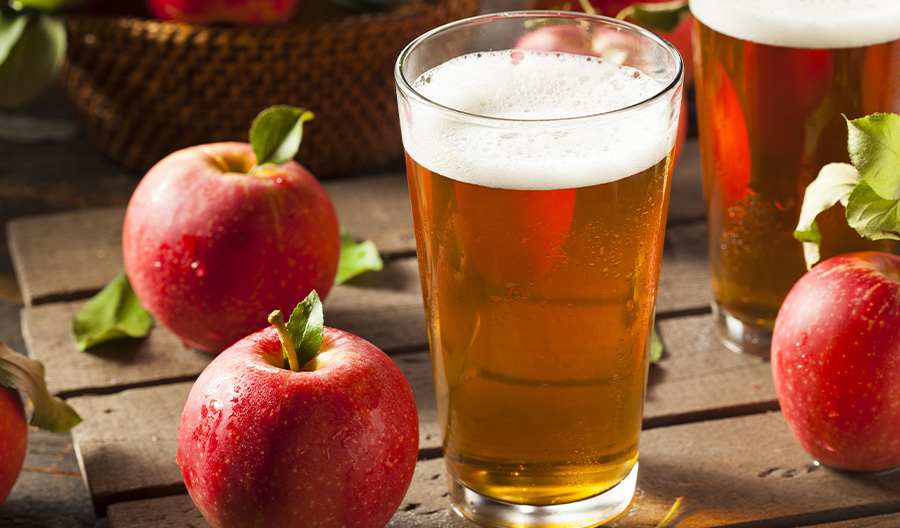I have a confession to make: When I started learning about hard cider, I would sometimes use beer terminology to describe the drink’s characteristics and production process. This was somewhat understandable; I had always seen cider lumped in with beer on menus and in coolers at grocery stores or bottle shops. Back then I thought the two beverages were more or less cut from the same cloth (flannel, specifically).
This couldn’t be further from the truth. While cider is made like wine it is marketed like beer. The beverages, including their histories and characteristics, aren’t similar. The production methods aren’t similar (brewing has more in common with distilling, whereas cider is made from fermented fruit). In order for cider to continue to grow and make it onto more tables (as it has over the past few years), it needs to get out of beer’s shadow.

Shouldn’t brands market their products how they see fit? Sure. But that might lead to some unintended consequences, like what we are seeing with California’s SB 788 legislation. If it passes, all breweries (regardless of size) will be able to produce cider and perry without obtaining a winegrower’s license. Put aside whether or not you think that’s fair. Instead, focus on this line: “According to the author’s office, ‘Cider and perry are considered a form of wine, and even though the process for manufacturing is identical to beer, all beer manufacturers were initially required to also obtain a winegrower’s license to manufacture cider or perry.’”
A letter in support of this bill from the California Craft Brewers Association (on behalf of the state’s craft beer industry) also states the process of beer and cider making are the same. Simply untrue.
Cider production is nothing like beer production. In fact, it’s more akin to winemaking. Yet, this bill stating a glaring falsehood made it past the Senate and Assembly and now is just waiting to be signed into law. But after years of regularly conflating cider with beer, it’s no wonder people are confused. (It also indicates the federal government could perhaps reallocate some of the $247 billion it wastes annually to hire some fact-checkers, but that’s none of my business).
What would happen if this letter or bill said beer and wine were one and the same, asks Cavalli. This, of course, would never happen (not in California anyway). But if it did, people would be outraged. Chances seem slim a bill with an error like that wouldn’t be challenged or even have a chance of passing.
This has been something of a slap in the face to cider producers. If cider is to continue to grow as a category, it’s imperative it’s treated as its own distinct beverage. Only then will it finally get the respect it deserves.

